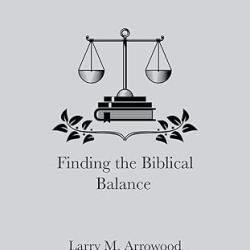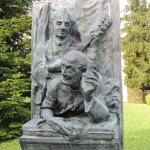
***
[Martin Luther’s words will be in blue]
[warning: contains some language regarding dung and related notions in just one portion, that may be offensive to some readers: from a biography of Luther: citing his own words. You (i.e., those who are or may be offended in this way) have been forewarned. Continue at your peril, and don’t blame me for the way Luther talked]
Many of us who have engaged in Catholic-Protestant debate have heard of the famous “saying” allegedly from Martin Luther, about justified man being a “snow-covered dunghill” (I certainly have). Strangely enough, however, the actual location of the saying (if, in fact, it is authentic) seems to be difficult to find. How is it, then, that a saying so mysterious has become almost commonplace as a sort of piece of “Luther folklore”? Even those familiar with Lutheran theology profess to be befuddled by this. Thus, Walt Tappert asked on a Lutheran discussion forum (June 13, 2003) :
A number of posters on a Catholic Discussion Board have been claiming that Martin Luther used a “snow-covered dunghill” as an ogy for justification. Some have claimed Luther made the ogy in his Table Talk.
When challenged to provide a reference, others reduced the claim to say “it is a part of the Lutheran tradition, and is an accepted as such by Lutherans, who believe that it is an apt ogy for explaining their concept of justification.”
A search of the CD-ROM of the American Edition of Luther’s Works returned no hits for “snow-covered dunghill.”
I have three questions:
1. Does anyone have any idea where Luther himself may have used “snow-covered dunghill” as an ogy for justification?
2. Can anyone cite prominent and respected Lutheran theologians who have used the phrase “snow-covered dunghill” as an ogy for justification?
3. In the event of negative responses for questions 1 and 2, can anyone cite prominent and respected non-Lutheran theologians who have embraced a “snow-covered” dunghill” as an apt ogy for justification?
I must confess that I’ve not heard the ogy used by Lutheran theologians or in Lutheran churches. I am really quite curious as to how this particular ogy became attached to Martin Luther.
Likewise, a Q & A page for WELS (Wisconsin Evangelical Lutheran Synod) provides this exchange:
Q: I was reading the writings of Martin Luther and one time I came across a passage that read basically that our sins would be ‘covered over ‘like snow over a dunghill. … I have never been able to find this piece since I first read it. Can you tell me where the passage can be located and what writings this could be taken from?
A: With regard to the Luther quotation, a check in the indexes of four major editions of Luther’s works does not reveal whether or where Luther might have said or written that. It is certainly in keeping with his understanding of the gospel, although he did have many ways of saying it better.
Note how it is granted that such a saying (real or not) would be “in keeping” with Luther’s soteriology. Another WELS page provided more information; even approximating the “saying”:
CSC: WELS Topical Q&A;: Doctrine: Justification/Salvation: Snow-covered dung
Q: I often have heard the quote by Luther that we are like snow-covered dung inasmuch as we are not actually justified in Christ but our sins are simply not imputed to us. I would like to use this in a paper, but I cannot find its source. My professor has also heard it, but does not know the citation. If you are aware of a citation for this line or if you believe that it is spurious, could you please inform me?
A: I am not familiar with the supposed Luther quote you mention. Others with whom I consulted have heard something similar to your quotation, but likewise have no reference to which they can point. Luther said and wrote much. Therefore he is often credited with saying things that he never said. It has also happened that Luther was paraphrased and the words were later accepted as direct quotations.
I searched the American edition of Luther’s Works and was not able to find a match. Granted, this is only a portion of the material that we have from Luther, but I am unable to electronically search the Weimar edition which is all encompassing.
Your quotation is especially interesting because the picture it presents sounds so much like Luther. We are, after all, rotten to the core, and yet the Lord Jesus has covered us with his righteousness so that we look as pure as snow in God’s eyes.
In his “Disputation Concerning Justification” (1536) Luther states (my bolding, as throughout):
I said before that our righteousness is dung in the sight of God. Now if God chooses to adorn dung, he can do so (Luther’s Works, Vol. 34, page 184).
In that same document Luther adds:
All the justified could glory in their works, if they would attribute glory to God with respect to themselves. In this manner they would not be dung, but ornaments (Luther’s Works, Vol. 34, page 178).
The picture is similar to your quotation but not an exact match. Although I cannot say with certainty that Luther spoke the words you quote, I can suggest that they do catch the sentiment Luther frequently proclaimed.
One can find many instances (contrary to Tappert’s impression) of Protestants themselves using the phrase and attributing it to Luther (alas, usually in undocumented fashion). A Google search of “Luther dunghill” or “snow-covered dunghill” or some such selection of words will quickly confirm this.
William Cork provided a tantalizing, but ultimately frustrating article on the subject:
Both Reformed and Catholics have accepted a caricature of Luther that Lutherans would not recognize. The caricature is best summed up by a rather unpleasant image that is often used by non-Lutherans (but which few Lutherans have ever heard of). In this metaphor for the Christian life, justification is compared to a sprinkling of snow on a pile of dung. We are the dung—horrible, smelly, corrupt, with no redeeming qualities. A light dusting of snow (the imputed righteousness of Christ) makes us appear to be something we are not. But the snow cannot change the dung.
(Justification by Faith: Can Catholics and Lutherans Agree? Internet Archives cache-version of 6-17-04)
Cork also wrote in the current version of his paper:
Funny thing about that quote—despite years of Lutheran seminary education, and experience as a pastor, and the reading of umpteen volumes of Luther’s Works, I have never come across that quote in print, nor have I ever heard it from the mouth of a Lutheran. Yet it is a favorite of Luther’s critics. I asked renowned Luther scholar Eric Gritsch about this, and he replied that it does exist somewhere in one of the “Table Talks” (after dinner ramblings written down by Luther’s students—not reliable sources for Luther’s thought), but even he couldn’t give me a reference.
Gritsch is a major Lutheran scholar, and one of the translators in the 55-volume English collection Luther’s Works, so his report is important. I searched through one online version of Table-Talk and couldn’t find the quote, but there are different versions, and German versions, etc., so that is not conclusive. If Gritsch really said that it existed, then it probably does. We just don’t know exactly where yet.
Now, is it plausible that at least some of Luther’s thoughts or clusters of ideas could reasonably be construed as amounting to the same thing as what this “quote” suggests? Perhaps. I have a theory, though I didn’t succeed in proving it and can only present it in relatively vague, speculative fashion.
The late Fr. John A. Hardon, S.J., who happened to have been a mentor of mine (he wrote the Foreword of my book, A Biblical Defense of Catholicism, received me into the Church, and baptized my first two children), provided one such example of a citation that might have something to do with the origin of the “legend”. He cites Luther:
Conceived in sorrow and corruption, the child sins in his mother’s womb. As he grows older, the innate element of corruption develops. Man has said to sin: ‘Thou art my father’—and every act he performs is an offense against God; and to the worms: ‘You are my brothers’—and he crawls like them in mire and corruption. He is a bad tree and cannot produce good fruit; a dunghill, and can only exhale foul odors. He is so thoroughly corrupted that it is absolutely impossible for him to produce good actions. Sin is his nature; he cannot help committing it. Man may do his best to be good, still his every action is unavoidably bad; he commits a sin as often as he draws his breath.
(St. Peter Canisius on Christmas Joy, Homiletic and Pastoral Review, Vol. 48 – #3, December 1947, pp. 167-172)
Fr. Hardon provides the following source in his footnote #8: “Werke (Wittenberg Edition), Vol. III, p. 518.” This refers to the edition of Luther’s works, published in Wittenberg: 12 volumes in German (1539-1559) and seven volumes in Latin (1545-1558). But what is this particular writing? I was unable to definitively identify it in a more specific fashion.
I thought that there might possibly be some connection to Psalm 51, which mentions being “whiter than snow” (51:7; RSV). Luther wrote a commentary on Psalm 51, which is included in the 55-volume English edition of Luther’s Works, known as “LW” (edited by Jaroslav Pelikan et al; Pelikan also translates this piece): Volume 12: 303-410.
Luther provides the analogy of man as a “dunghill” (assuming the authenticity of the above citation) and Scripture gives us the metaphor of snow washing away our sins. If we put the two together, we can arrive at the same idea as the folkloric “saying,” by simple logical extension or deduction. It would then be a combination of an actual word used by Luther and the application of another word from Scripture, which Luther commented upon. If this is a correct description of what happened, the “saying” would be not so much an inaccuracy or falsehood, as a legitimate, accurate paraphrase of his thought at this point. Psalm 51 was King David’s impassioned plea of repentance, after the prophet Nathan told him that he knew of his sins of adultery and murder. He writes in 51:5:
Behold, I was brought forth in iniquity, and in sin did my mother conceive me. (RSV)
This is a prime proof text for original sin. The metaphor of snow comes from 51:7:
Purge me with hyssop, and I shall be clean; wash me, and I shall be whiter than snow.
Hence, man the “dunghill” (Luther’s excessive extrapolation) can be covered in “snow” (inspired Scripture) after repentance and achieve justification (according to Protestant theology). According to Luther and classic Protestant soteriology of imputed, extrinsic justification, he remains this dunghill and is merely covered up by God’s declaratory justification. He can (gradually, slowly, and imperfectly) become more righteous subsequent to justification, however, through the process of sanctification. Catholicism does not make this formal separation.
As a related aside, Scripture (KJV) does use the word dung some 28 or so times, but never, as far as I can tell from scanning a concordance, as a description of man. St. Paul, for example, writes in Philippians 3:8, in that same version:
. . . I count all things but loss for the excellency of the knowledge of Christ Jesus my Lord: for whom I have suffered the loss of all things, and do count them but dung, that I may win Christ.
Possessions are dung compared to the riches of Christ Jesus: a far different statement from calling man himself “dung.” Man is made in God’s image, and though he is fallen, he is not worthless excrement. This was one of the novel, peculiar contributions of the so-called “Reformation,” to introduce this non-biblical motif into Christian theology (sadly one of several such unbiblical themes). Luther himself picked up on this passage in his Lectures on Galatians, from 1535:
And with Paul let us confess that all our works and righteousness . . . are nothing but loss and refuse (Phil. 3:8). And let us tread underfoot and utterly abhor, as a polluted garment (Is. 64:6) and the deadly poison of the devil, all the power of free will, all the wisdom and righteousness of the world, all religious orders, all Masses, ceremonies, vows, fasts, hair shirts, and the like.
(LW, vol. 26, p. 41; translated by Jaroslav Pelikan)
Thinking that I might have been onto something in connecting Luther’s commentary on Psalm 51 (written in 1538) with this famous reputed “saying” of his, I read the entirety of that piece today. I didn’t find anything which could be identified with the “saying,” but I do think that all the notions which make up the “snow-covered dung” image can be found here. First I looked up all instances of “dung” as listed in the index of the 55 volumes. None of them directly applied to this issue (though some came close).
The only time it appeared in this commentary (which the index missed) was on page 327 of volume 12. Luther is commenting upon Psalm 51:2: “Wash me more abundantly from my iniquity, and cleanse me from my sin” (Pelikan’s rendering):
It is not enough that this sin is forgiven through grace, for through our infirmity we fall right back into sin . . . the thing itself, which is truly sin and is remitted and forgiven by God, still remains in the flesh and is not completely dead . . . in the justified there are still remnants of sin, like lust and other vices. These the prophet sees in himself as dung or seed plots . . .
. . . God wants to wipe out the sins as far as the forgiveness of their guilt and their power are concerned, but not as far as the thing itself or the nature of the sin is concerned . . . Therefore, both statements are true: “No Christian has sin”; and “Every Christian has sin.”
. . . He is righteous and holy by an alien or foreign holiness – I call it this for the sake of instruction – that is, he is righteous by the mercy and grace of God. (pp. 327-328)
Apart from this, Luther makes several statements about the entire, total corruption of man’s nature. Such utter corruption and evil might also (especially in Luther’s own colorful vocabulary) be referred to as worthless “dung”:
. . . it is great wisdom to know that we are nothing but sin . . . From such a root nothing good before God can come forth . . the whole nature corrupted by sin . . . (p. 307; Althaus – see source below – renders this as “there is simply nothing in us that is not sinful” – p. 153)
We say that the natural powers are corrupt in the extreme. (p. 308). . . it is a fictitious expression to speak of a “holy man,” just as it is a fictitious expression to speak of God’s falling into sin; for by the nature of things, this cannot be.
For this reason we must reject those very ancient and deep-rooted errors by which in monastic fashion we speak of Jerome or Paul as “holy.” In themselves they are sinners, and only God is holy, as the church sings. Those whom we call “holy” are made holy by an alien holiness, through Christ, by the holiness of free mercy. In this holiness the whole church of the faithful is the same, there is no difference . . . It does not matter that Peter and Paul did greater things than you or I . . . So you see nothing holy, nothing good in man, as the psalm says (Ps. 53:2,3), “God looks down from heaven upon the sons of men . . . There is none that does good, no, not one.” . . . Therefore let us keep quiet about holiness and holy people . . . everything that is ours is evil before God . . . (p. 325)
. . . it is clear how we become righteous, namely, by the mere imputation of righteousness . . . (p. 326)
. . . neither the tree nor the fruit of human nature is good, but that everything has been so deformed and destroyed by sin that there is nothing sound left in all of human nature. [expanding upon David’s statement of 51:4] “. . . I am completely evil. Before Thee this is my name, that I do evil, that I have sinned, that I am sinning, that I shall sin forever.” (p. 337)
This glory of righteousness must be left to God alone. (p. 338)
. . . that constant and innate sin in which we live and die. (p. 339)
He is talking [in 51:5] about the unformed seed itself and declaring that it is full of sin and a mass of perdition. (p. 348)
[Luther thinks that procreation is intrinsically sinful (apparently because of universal lust): “. . . the sin there is in procreation . . . in this respect how is our nature better than that of the beasts? In this action there is no knowledge of God and no faith . . . God puts up with this sinful begetting for the sake of His creation . . . the procreation of children . . . cannot be without sin . . .” – p. 349 This makes sense within his framework, since he thinks everything we do is tainted by sin]
. . . we acknowledge that we are completely sinful, indeed that it was sin even when we were conceived and formed in our mother’s womb. (p. 352)
Luther scholar Paul Althaus (The Theology of Martin Luther, translated by Robert C. Schultz, Philadelphia: Fortress Press, 1966), provides more examples of similar sentiments from Luther:
No one can be certain that he is not continually committing mortal sin, because of the most secret vice of pride. (p. 149)
[Althaus writes: “The pope condemned this statement in his bull excommunicating Luther, and Luther states it even more sharply in his defense in 1521”]
I say now that no one should doubt that all our good works are mortal sins, if they are judged according to God’s judgment and severity and not accepted as good by grace alone. (p. 149; LW 32, 91)
[Althaus: “This is due not to the character of good works as specific individual acts but to man’s pride which stains them all.”]
A righteous man sins in all his good works. (p. 149; LW 32,83)
A good work, even though well performed is a venial sin according to God’s merciful judgment, and a mortal sin according to God’s strict judgment. (p. 149; LW 32,86)
Every good work is a sin unless it is forgiven by mercy. (p. 149; LW 32,209)
. . . he never does good without its being corrupted . . . we always sin even when we do what is right; sometimes we sin more and sometimes we sin less, depending on how much our flesh assails us with its impure desires. (p. 152; LW 31,61)
[Althaus writes on the same page: “This is true not only of man without Christ but also of the Christian man. For, although he has received the Spirit of God, he still remains ‘flesh’ which resists God’s will. For this reason he still sins even when he does what is right.”]
[possibly offensive language warning]
Moreover, Luther called himself “dung”:
Luther frequently called himself a piece of shit and in a part of his table talk of 1542-43 that fascinated Erickson, he said, “I am the ripe shit; so also is the world a wide asshole; then shall we soon part.”
(in Richard Marius, Martin Luther: The Christian Between God and Death, Harvard University Press, 2000, p. 20; primary source, TR 5, no. 5537 — footnote on p. 491. Elsewhere I found further documentation: TR 5:222.14-15.19-20. LW 54:448. See Erickson’s alternate rendering, on p. 206 of his famous work, Young Man Luther)
Keeping all this in mind, as Luther’s conception of the total depravity of man and how he “frequently” described himself, let’s now look at how he comments upon Psalm 51:7, which refers to snow cleansing our sins:
How can we become “purer than snow” even though the remnants of sin always cling to us? I answer: I have always said that man is divided into spirit and flesh. Therefore, as far as the total man is concerned, there remains remnants of sin or, as Paul calls them (2 Cor. 7:1), “defilements of body and spirit.” . . . Still we have obtained Baptism, which is most pure; we have obtained the Word, which is most pure; and in the Word and Baptism we have by faith obtained the blood of Christ, which is surely most pure. According to this purity, which in spirit and faith we have from Christ and from the Sacraments that He instituted, the Christian is rightly said to be purer than snow . . . even though the defilements of spirit and flesh cling to him. These are concealed and covered by the cleanness and purity of Christ . . .
. . . if you look at a Christian without the righteousness and purity of Christ, as he is in himself, even though he be most holy, you will find not only no cleanness, but what I might call diabolical blackness. . . . Therefore if they ask: “Sin always clings to man; how, then, can he be washed so as to make him whiter than snow?” you reply: “We should look at a man, not as he is in himself, but as he is in Christ. (pp. 366-367)
Thus we virtually have all the elements of the alleged “saying”: “snow-covered dunghill” in this one work alone: the commentary on Psalms 51. This is all the more so if we realize that Luther often equates “the flesh” with fallen man in and of himself (as Althaus elaborates at length, on pp. 153-155). On p. 327 Luther refers to “remnants of sin” in the flesh as “dung.” His treatment of man’s nature generally lends itself to the description of dung, as it is worthless, totally corrupt, and evil. Luther also pits man’s uncleanness and “diabolical blackness” over against the “cleanness” of baptism and justification; impurity to purity (with perhaps the Old Testament ritual cleanliness concerning dirt, dead bodies, menstruation, etc. in the back of his mind). This readily lends itself to the same interpretation. His comments on “snow” immediately above clearly fulfill the second component of the “saying”.
If we also add the direct reference to man as a “dunghill” (which I documented from Fr. John A. Hardon, S.J.), then we have the entire conception, directly expressed in one place or another, if not one concise instance of a saying which encapsulates the thought.
As a clarification, to be fair to Luther (who is often pilloried, slandered, and misrepresented by Catholics, especially non-scholars on the Internet), and to accurately present his entire teaching, it is to be emphasized that, despite all this bad theology above (according to Catholic orthodoxy), Luther does accept the notion of progressive sanctification. He is not an antinomian; he does not condone or sanction sin on the grounds that it is absolutely unavoidable, or rendered ineffectual due to justification, or some sort of bogus “eternal security” based on a one-time justification. He only denies that such works play any role in justification or salvation, or that they can remove all sin before death. He denies entire sanctification. But then so do Catholics, in most cases (which is precisely why we believe in purgatory). Hence Luther wrote, in the same commentary:
Let us take care to be washed daily, to become purer day by day, so that daily the new man may arise and the old man may be crushed, not only for his death but also for our sanctification. (p. 330)
. . . as long as we live, we all ask to be washed thoroughly.
These are the two parts of justification . . . the second part is the conferring of the Holy Spirit with His gifts, who enlightens us against the defilements of spirit and flesh (2 Cor. 7:1) . . . Thus the true knowledge of God grows daily, together with other gifts. like chastity, obedience, and patience. Thus our body and its lusts are broken so that we do not obey them. Those who do not have this gift or do not use it this way, but fall into the uncleanness of either the flesh or the spirit, so that they approve of all doctrines without discrimination – they are dominated by the flesh, and they do not know the bath of the Holy Spirit for which David is asking here. (p. 331)
In true theology, therefore, this is the first concern, that a man become good through the regeneration of the Spirit . . . Then it comes to pass that, as from a good tree, good fruits are also born . . . his own works, which ought to follow in regeneration.
. . . These are the main works which testify that a tree has been changed from a barren tree to a fruitful one . . . (p. 385)
Interestingly enough, I even managed to come across a “snow over refuse” analogy by Luther which has more to do with his belief in sanctification, than his Lutheran imputed justification doctrine:
We see grain sowed in the ground. Reason now asks: What happens to the grain in winter that has been sowed in the ground? Is it not a dead, moldy, decayed thing, covered with frost and snow? But in its own time it grows from that dead, moldy, decayed grain into a beautiful green stalk, which flourishes like a forest and produces a full, fat ear on which there are 20, 30, 40 kernels, and thereby finds life where only death existed earlier. Thus God has done with heaven, earth, sun and moon, and does every year with the grain in the field. He calls to that which is nothing that it should become something and does this contrary to all reason. Can He not also do something which serves to glorify the children of God, even though it is contrary to all reason? (Sermon on Our Blessed Hope, St. Louis Edition of Luther’s writings, IX: 930-957)












